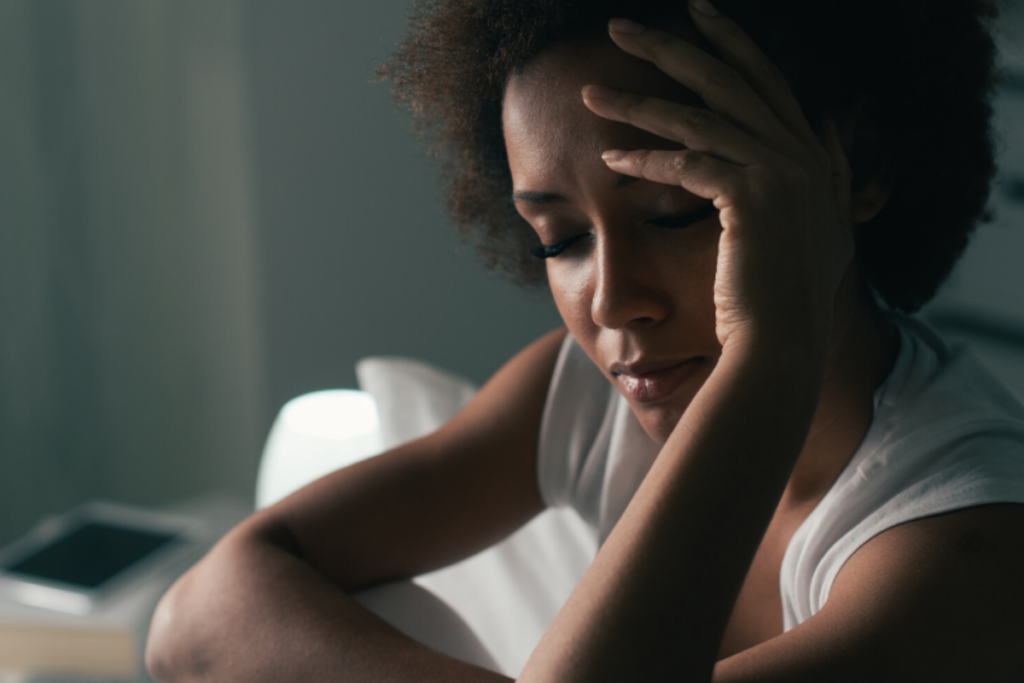Steps To Help Your Insomnia
Insomnia is a whole lot more than your body telling you that you have had enough sleep. Actually, insomnia is your body’s way of letting you know that something is wrong.
Insomnia is different in each person, some just can not fall asleep, others wake in the middle of the night and are unable to fall back asleep, and some just wake up much too early.
There can be various reasons, perhaps you are drinking too much caffeine, maybe you suffer from anxiety and depression, maybe you have some conflict or inner struggles in your life, or maybe you are in pain from migraines or arthritis.
Whatever the case, there is a problem that needs to be diagnosed before you will get another good night sleep.
When your body is not allowing you to sleep there is a problem and your body is telling you that something is wrong with your body and or mind that needs to be addressed.
Most adults require about 7 or 8 hours of sleep each night but that can vary depending on the person. Usually a person knows if they have got enough sleep depending on the way that they feel the next day. If you feel tired and lack energy then odds are that you likely did not get your proper rest.
Research has shown that as people age their Stage 4 sleep, which is the deepest sleep, tends to become shorter and eventually can disappear entirely.
This result is older people waking more during the night and napping more during the day. This is not always indicative of a sleep disorder such as insomnia.
There are some things that you can attempt on your own in an attempt to rid your insomnia such as eliminating caffeine, watching your intake of alcohol, using relaxation techniques, limiting any stimulating activities at least a few hours before bed, and keeping a routine at bedtime.
Make sure that you are not hungry or too full, try taking a nice hot bath, or even try reading yourself to sleep. Make sure that you are attempting to sleep in a comfortable bed.
If you find that you are having a difficult time falling asleep then remove yourself from the bed and go do something else until you become tired again.
Never nap! As much of a drag as this might sound you have to establish a bedtime for yourself and a get up time and stick with it seven days a week.
These are attempts that you can make but if they do not work then make an appointment to see your doctor so you do not lose another precious night’s sleep. You are worth it and you will feel so much better.
Perhaps you might want to try some herbal remedies that are relatively inexpensive and easily accessed over the counter.
Many of these herbal compounds especially Lavender and catnip have been used for centuries to relax and calm people down, therefore allowing them to fall asleep.
Environmental Causes of Insomnia
If you are having a very difficult time sleeping at night whether it is falling asleep or staying asleep, it could very well be that it is environmental factors that are hindering your sleep.
Think about your home and where you sleep, what could it be that is waking you up? It could be noise, lighting, and a neighbor’s dog, a busy road by your home, a snoring spouse, and police sirens if you live in the city, and the list goes on and on.
Even if you slept through the night, these factors can affect the quality of sleep that you get. Other factors can be temperature that is either too hot or too cold and allergies from environmental factors.
Now if you have found that you are suffering from insomnia and the cause is one of an environmental issue then you are going to have to act to get results and this is something that you might want to address right away. Adjust the temperature in your room if it is too hot or too cool.
There are a lot of ways to make your room a very comfortable temperature while still allowing for the comfort of others in the home.
If it is too warm, close your vents, you can even cover them with foil if there still seems to be heat escaping into the room. Ceiling fans work great too.
If it is too hot get an air conditioner, even a small window unit will cool off your room. Maybe you do not live in a single family home, you live in an apartment or condo and you are lying awake because of one of your neighbors.
You have the right to do something about that, talk to management or talk to your neighbors and have the matter cleared up before you lose anymore rest.
Another environmental factor that contributes to lack of sleep/insomnia is when a new baby is in the home. While many fathers are able to sleep through all of the middle of the night feedings, usually it is the mother who lacks sleep, and lots of it at that. Unfortunately, there is not much that you can do about this. This is one form of insomnia that you will have to just wait to pass.
If bright light is coming into your room from any source that you are uncomfortable with then invest in some room darkening blinds and your room will stay dark as long as you want it to, even in the middle of the day.
If it is noise that keeps you awake, find the source and eliminate it, even if it means moving. If you have a spouse that snores a lot or tosses and turns then find out the cause of that problem and eliminate it.
Worst case scenario, you may have to have to get separate rooms. Whatever the cause, if it is environmental, thank your lucky stars that you do not have insomnia in a form that you can not eliminate, as many do.
Insomnia Risk Factors
Insomnia is really quite common in America and a good portion of people have to deal with it at one time or another. However, most people attempt to deal with insomnia on their own and never consult a physician about it.
As a matter of fact, during routine physicals and doctor visits, most doctors never even ask about a patient’s sleep pattern at all.
Because there is some very effective sleep medication available by prescription that can be used for up to six months without any addictive properties, insomnia no longer has to be a treacherous path to walk down.
There are certain risk factors that put a person at higher risk for insomnia that might and should be addressed. Some insomnia risk factors include aging or the elderly, conflict in one’s life, being overworked, illness in the family, ranking low in social status, or a psychiatric or psychological problem.
Of course those who will be at a greater risk of developing insomnia would typically be a female over the age of 60, with a history of stress, anxiety, or depression, maybe a combination of all, and one who may have an underlying medical condition.
It has been a myth that as people get older, they require less sleep. That myth has never been validated and remains untrue today.
Keep in mind that these risk factors do not mean that a person will develop insomnia but that they may be at a greater risk.
Negative thinking is also associated with insomnia or when something is really weighing heavily on one’s mind.
This can have a negative impact and because the mind is preoccupied with these thoughts, it can trigger a bout of insomnia.
Sometimes people have an onset of insomnia that is very temporary while in others, it could linger for months.
Depression is the number one factor associated with depression and almost all people who have been diagnosed with this condition have insomnia. Therefore, it is likely that if the depression can be dealt with, the insomnia may subside as well.
A lack of proper sleep can also weaken one’s immune system which can cause them to be susceptible to all kinds of illness including colds, viruses, and the flu. Studies have shown that insomnia is much higher in women than it is in men.
It is believed that the cause for this is that with women there are usually some time of hormonal fluctuation that could be the cause such as premenstrual syndrome, menstruation, pregnancy, and menopause.
Further, anxiety is much more prevalent in women than it is in men, therefore which could be another reason that insomnia is higher in women than it is in men.
There has also been a relationship between childhood sleep patterns and adult insomnia. Childhood sleep disorders would include nightmares, sleep walking, difficulty falling asleep, or restless leg syndrome.
Children who experience these disorders do have a higher risk of developing insomnia later into adulthood. Another factor that can produce a great risk is ADHD in a child that spills over into adulthood.
Camille McClellan, MD, DNM, MBS
Naturopathic practitioner
McClellan Natural Health, Wellness & Nutrition
Free Naturopathic/Homeopathic Consults Available

